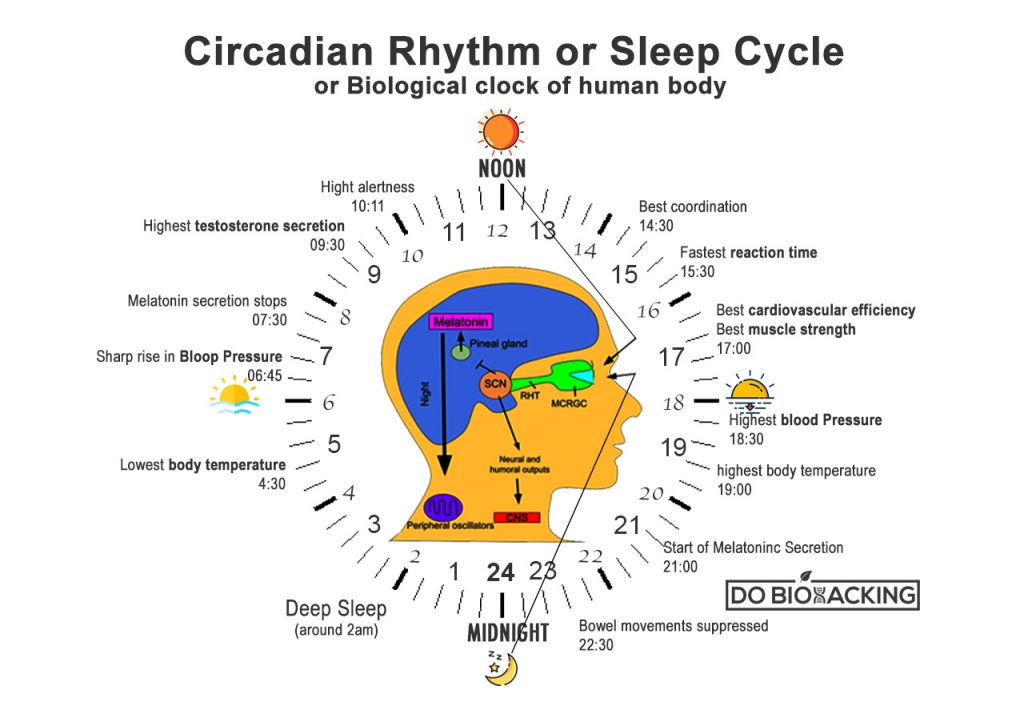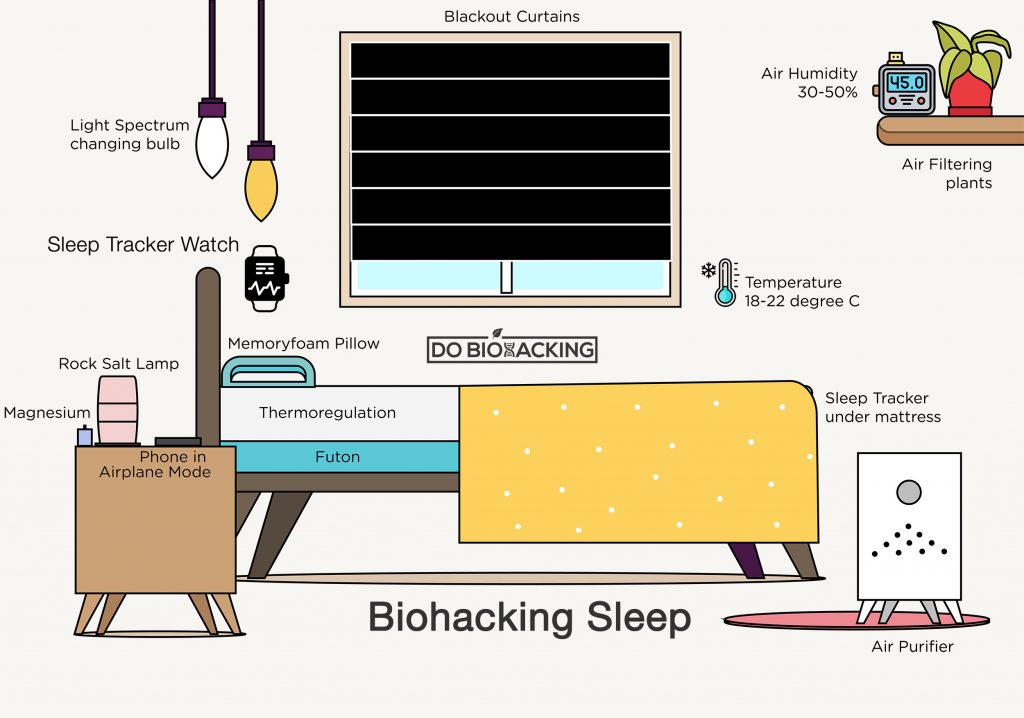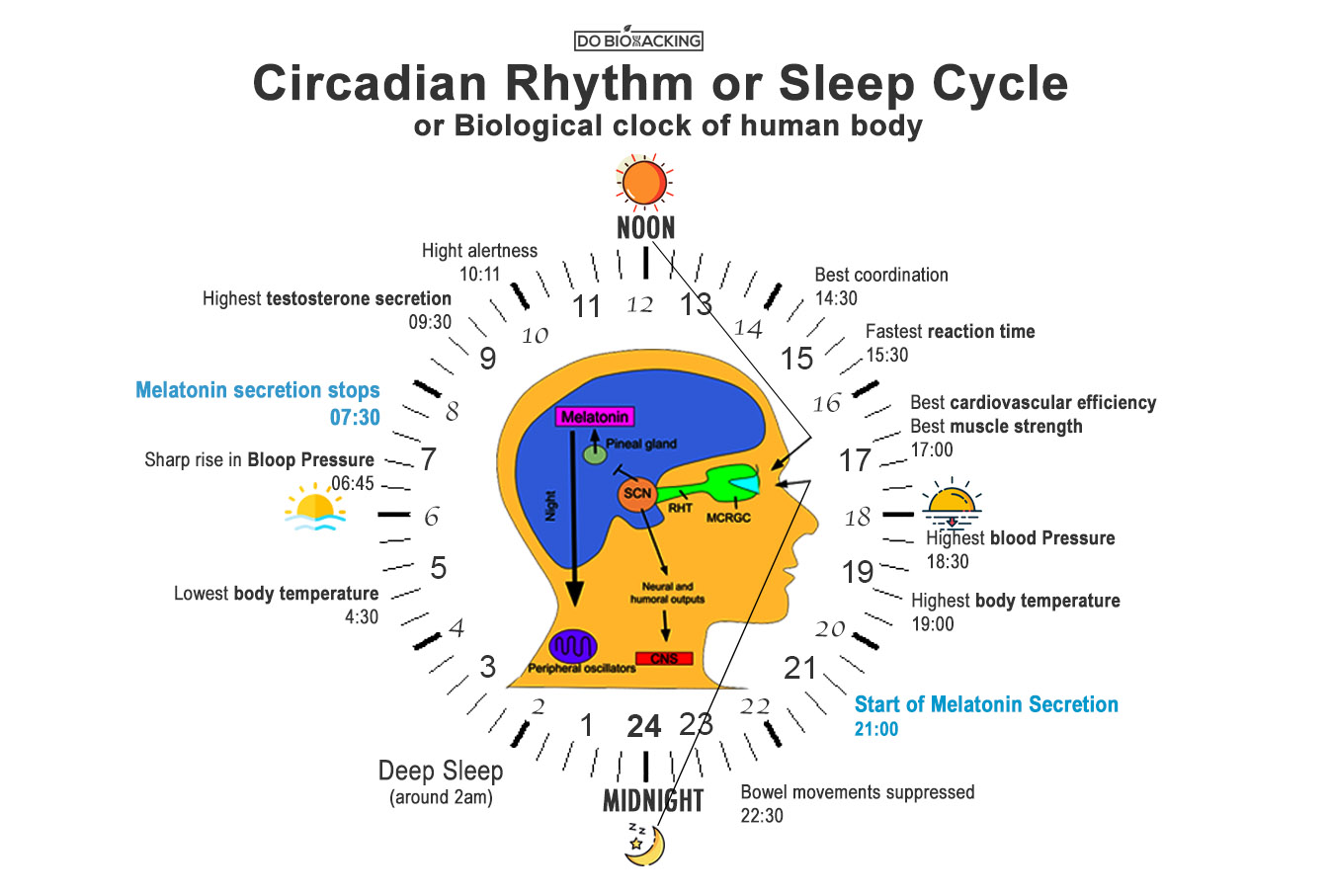Our body, Just like any machine has a manual to perform under ideal conditions. During our sleep our body go through very critical biological process related with our brain, organs & chemicals responsible for immunity(Cytokines).
Our brain resets when we go to deep sleep by getting rid of toxic waste. Our body generate various hormones & chemicals when we sleep, this repairs cell and restore energy. Our brain generates various oscillation in different frequency (Delta waves (. 5 to 3 Hz), Theta waves (3 to 8 Hz), Alpha waves (8 to 12 Hz), Beta waves (12 to 38 Hz) & Gamma waves (38 to 42 Hz) to communicate with body.
Index of Page
Impact of Sleep
- Brain Function: Learning, memory, problem solving skills, creativity, decision-making, focus concentration.
- Immunity: During sleep body generate Cytokines. Cytokines are a type of proteins, peptides or glycoproteins from immune system. Cytokines are responsible for regulating immunity, inflammation and hematopoiesis. Do you want to have immunity to fight with virals or even COVID?
- Emotional Intelligence: Amygdala (set of neurons plays a key role in the processing of emotions, its part of the limbic system of brain), Striatum (a neuronal activity related to movements), hippo, insula & medial prefrontal cortex.
- Body Weight : Sleep control hunger hormone like ghrelin.
- Insulin : Sleep control glucose and energy cycle of body which is responsible for insulin resistance.
Disorders as an impact of Sleep: Anxiety, depression, mood swings, poor memory function, poor focus, fatigue, weak immune system, weight gain, high blood pressure, diabetic prone( insulin resistance), chronic diseases, inshort lack of proper sleep = early mortality.
Did we got your attention? Go through the article to Biohack your sleep.
We work, we live, we eat but If we can’t sleep properly then Money is of no use.
Scientific logic before understanding the tools to Biohack Sleep
When human eyes expose to the light from the sun(around 7:30 a.m), the pineal gland’s stops the production of the melatonin. This hormone is also responsible for keeping us awake. When the eyes do not receive light (during the night, around 9 p.m), melatonin production starts in the pineal gland and we start to get slow and feel tired. Within after few hours, we go into a deep sleep. By monitoring your exposures, you can easily biohack sleep.
Before we get to understanding how the circadian rhythm can be instrumental in influencing your sleep patterns, let’s understand the concept. Say, for instance, you may have noticed that you feel active and sleepy around the same time every day. This is where your circadian rhythm comes into effect. So what is it exactly?
What is Circadian Rhythm?
An individual’s circadian rhythm is actually a 24 hour biological or internal clock that runs in the background of your brain and alternates between drowsiness and energized levels at specific intervals during the day. Simply put, the circadian rhythm is also referred to as the sleep/wake cycle.
Some Facts about sleep cycle:
1. The rhythm has a free-running, it is also denoted by the Greek letter τ (tau). This period lasts approximately 24 hours. Few animals diurnal(active during day( has τ (tau) is slightly greater than 24hr & for few animals (nocturnal, active at night) τ (tau) < 24hours.
2. The rhythm is directly proportional to external stimuli (such as light and heat). One can rest or entrain it, example: When we travel in a different time zone and feel jet-lagged.

Download the chart.
This chart also explains the body timings for:
Average deep sleep time (2 a.m), lowest body temperature (4:30 a.m), a sharp rise in BP (around 6:45 a.m), as we wake up melatonin secretion stops, highest testosterone secretion (around 9:30 a.m), highest body alertness (around 10 a.m), best coordination (around 2:30 pm), fastest reaction(around 3:30 pm), best cardiovascular efficiency of the body (5 pm), best muscle strength (around 5 pm), highest blood pressure (6:30 pm), highest body temperature (around 7 pm), highest melatonin secretion (around 9 pm)
This can be used to Biohack Sleep
Did you know that the placement and angle of the sun are what determines your circadian rhythm(detailed explanation)? And because people these days rarely step outside the house and are only exposed to artificial lights around them, their bodies find it difficult to gauge the exact biological time. This means the quality of sleep suffers that affects the production of hormones and negatively impacts the production of melatonin — which is considered the sleep hormone. In the last post, we also talk about how to transform irregular sleep patterns but today, let’s take that topic further while talking about sleep cycles.
What Constitutes Sleep?
If you were to analyze sleep and break it down into technical components, typically, there are four pillars of sleep in the order of importance. These must be aligned to get the right quality of sleep.
- The Mind
- Your Circadian Rhythm (check out this music on Spotify, which I use to align it)
- The Environment Around You
- Your Mitochondria, also known as “the powerhouse of the cell & body”. Mitochondria are actually a part of a eukaryote cell, responsible for energy for the body. They consist of adenosine triphosphate (ATP), a molecule that cells use as a source of energy.
Tips to Biohack your sleep cycle :
Ideally, the best way to ensure a good night’s sleep is to calm your mind. An overactive mind could make it almost impossible to sleep and could result in poor quality sleep. If you find it difficult to calm your mind, here’s what you can do.
1. Practice deep abdominal breathing
As an incredible tool at your disposal, deep breathing can relax you and cut down your stress. Scientifically speaking, practising deep abdominal breathing is known to activate the vagus nerve that is a crucial component of fostering a sense of safety and grounding to enable you to fall asleep.
2. Get Some Sun
Look at the sun during crucial moments in a day. Pick out the sunrise, midday, and sunset to expose yourself to the sun for 15 to 20 minutes.
3. Avoid blue light exposure
When you are not exposed to the sun, consider wearing blue-blocking glasses. The specific type of lenses helps in filtering out as much artificial blue light around you as possible while helping you to retain your healthy vision. All artificial light produces a good deal of blue light that prevents your body from producing accurate amounts of melatonin.
Note: If you don’t already know. Blue light is not good for humans, it can damage light-sensitive cells in the retina. Long exposure to blue light may increase the risk of macular degeneration.
4. If possible, use candles or red-light during sunset.
Once the sun has completely set, you can fire up your circadian rhythm with the help of candlelight or red light. Since fire emits very little blue light, it can be key in triggering your circadian rhythm.
5. Eat your last meal before the sunsets
Did you know that your digestion functions at an optimum level when the sun is still up? This means that as the sun begins to set, your body naturally and biologically gets ready to rest and sleep. Hence, if you eat a big meal, especially a meal high in carbohydrates, it can significantly affect your sleep.
6. Use blackout curtains or wear a sleep mask
Even the tiniest amount of artificial light from the street outside could spike your cortisol levels and negatively impact your bodies melatonin production. So, to avoid that you can either wear a sleep mask or the best option is to use blackout curtains, which I personally recommend.

Why Optimizing Your Sleep Through Biohacking Methods Is Important?
Unlike our ancestors, we have less exposure to sunlight, given our daily work schedules and lifestyles. In the past, humans were more active, and in the presence of good sunlight, their circadian rhythm was optimal. Today, however, we need to get in touch with our environment and nature for our bodies to thrive.
Getting the right quantity of sleep is important but even more crucial is to get a deep and good quality sleep. In today’s fast-paced world, knowing how to optimize your sleep is extremely important as it can be the answer to several health problems. From reducing the chances of mental health problems, low energy issues, dementia and physical stamina, you can now know how to have a perfect sleep through a healthy circadian rhythm.



